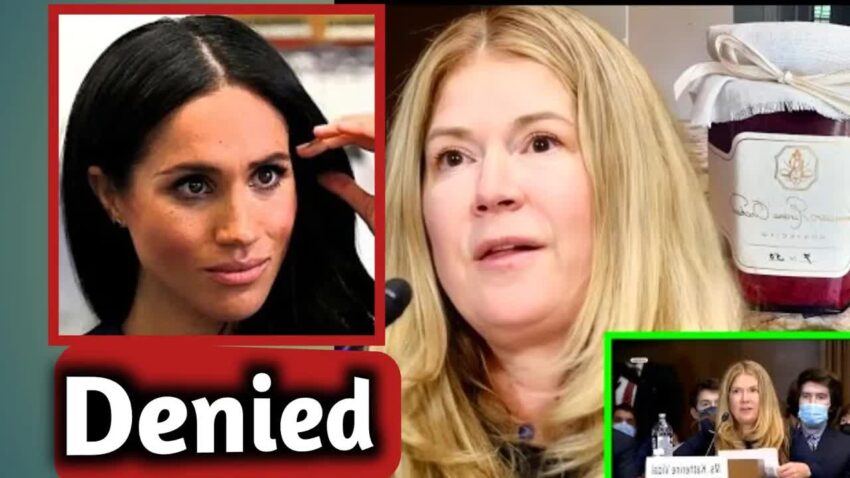The recent rejection of Meghan Markle’s Riviera Orchard trademark application by the United States Patent and Trademark Office (USPTO) has sent ripples through the celebrity branding landscape, marking a significant hurdle for her entrepreneurial ambitions.
This development has not only caught the eye of Royal Watchers but has also ignited conversations about the intricacies of intellectual property and how it shapes the branding strategies of public figures.
Before diving into the implications of this trademark controversy, let’s take a moment to revisit who Meghan Markle is.
Born in Los Angeles on August 4, 1981, she first gained fame as an actress on the television series “Suits.”
However, her life took a dramatic turn when she began dating Prince Harry in 2016, culminating in their globally celebrated wedding two years later.
Since stepping back from royal duties, Meghan and Harry have dedicated themselves to various philanthropic projects, often under the watchful gaze of the public.
Despite facing intense scrutiny, Meghan has shown a willingness to embrace risks, particularly in her ventures into business and branding.
This brings us to the heart of our discussion today: the contentious issue surrounding her trademark application for Riviera Orchard.
Meghan envisioned creating a lifestyle brand that would encompass skincare, clothing, and home goods, all encapsulated by the vibrant imagery of orchards and luxury living—a perfect fit for her aesthetic.
Trademarking is crucial for establishing a unique identity in an increasingly crowded marketplace.
It not only protects the brand from potential infringers but also fosters consumer trust and loyalty.
Given Meghan’s high profile, the Riviera Orchard brand had substantial potential for recognition.
However, the USPTO’s decision to reject the application has thrown a wrench in those plans.
The rejection was primarily based on the need to prevent confusion with existing trademarks.
In the realm of branding and intellectual property, it’s vital to select a name that stands apart from others to maintain originality and avoid legal complications.
The USPTO plays a critical role in safeguarding registered brand owners while simultaneously facilitating new businesses’ growth through thorough evaluations.
Meghan’s experience underscores a key principle in trademark law: it’s not just about being unique; it’s also about being distinct enough to avoid any potential overlap with established brands.
The USPTO determined that the name Riviera Orchard was too similar to existing trademarks, resulting in the denial of her application.
This setback could have far-reaching implications for Meghan Markle, particularly regarding her plans to launch her lifestyle brand.
Without trademark protection, she may face legal challenges that could jeopardize her business aspirations.
Additionally, this rejection could tarnish her public image, especially given her controversial standing following her royal connections.
It might even fuel narratives questioning her success post-royalty.
The saga of Meghan Markle’s trademark journey opens up a broader dialogue about the hurdles celebrities face in establishing their trademarks in today’s digital age.
Many celebrities, like Kim Kardashian with her KKW Beauty line and Rihanna with Fenty, have successfully navigated similar challenges.
Yet, building a strong market presence remains fraught with difficulties, including legal disputes and shifting public perceptions.
When a name is synonymous with elegance and success, the pressure to meet expectations can be immense.
Although Meghan faced a setback with Riviera Orchard, this experience could serve as a valuable lesson for aspiring entrepreneurs, particularly those in the spotlight.
It highlights the importance of thorough preparation and understanding the complexities of trademark law in the pursuit of business success.
As the conversation around celebrity branding continues, Meghan Markle’s situation serves as a poignant reminder of the intricate dance between fame, entrepreneurship, and the legal landscape that governs them.
